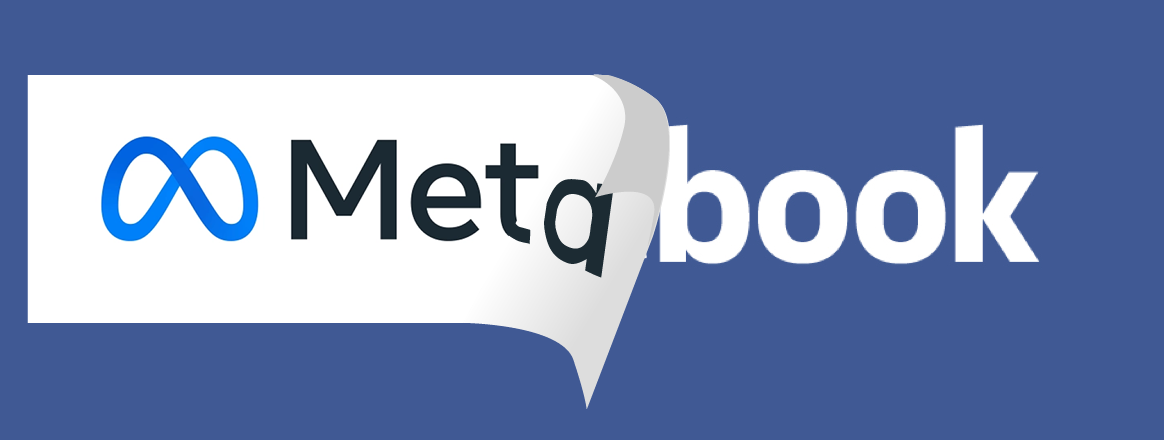How to Avoid Accountability, If Your Name Happens to Be Facebook
I wrote this a few months ago, a day after Facebook announced their re-branding to Meta. A few details might have changed since then.
Facebook (Meta) has been in the news quite a bit lately, and not for reasons that Facebook (Meta) would like to be. For the growing list of Facebook (Meta) whistle-blowers, this is hopeful news. Facebook (Meta) might finally be forced to take some accountability for their actions.
Amidst the controversy, almost out of nowhere, Facebook announced that it is re-branding its larger corporate entity to Meta, something which is meant to represent the larger focus of the company, rather than simply the site “Facebook.com”. Facebook appears to be pulling a similar move to Google with Alphabet in 2015, but perhaps for slightly different reasons.
Many people, perhaps even most people view this as an attempt at shaking the controversy, and rightfully so. But I believe that the brilliance in this plan goes much farther beyond simply shaking the controversy, even shielding themselves from future controversy.

You might be asking yourself, why am I writing (Meta) every time I mention Facebook? Well, the answer is association, a topic which I cover later in the article. I am going to use them interchangeably. I want you to intuitively think of the two brands being the same entity, which they are. Along with all of the negligent (at best) behaviour that Facebook has become known for.
It seems that everyone who I know -usually- hates Facebook (Meta). It is worth noting, however, that I am a Canadian. A recent study came out to show that “Most Canadians believe Facebook harms their mental health”[1]. This seems to be a popular opinion over here. Considering that Facebook (Meta) is based in the U.S., perhaps the public there has a better view of the corporation. But without a doubt, on the international stage, the brand “Facebook” has been dragged through the mud. In the eyes of the corporate executives at Meta (Facebook), it may not be salvageable.
Some companies choose to live with their controversial brand name and poor behaviour. EA was rated the most hated brand for many years. Nestle has often come to be known as the “exploit your local municipality for pennies and destroy the local water supply in order to make billions off of water bottle sales” corporation. This might work for EA or Nestle, but companies like Facebook do not make money by selling services or products to users. They make money off of advertising, primarily. And advertising clients often prefer to steer clear from controversy, something which Meta (Facebook) has been full of.
But it is even more complicated than that. Meta (Facebook) has made it exceedingly clear in their most recent re-branding video that they plan on increasing their presence even further in your life through VR and AR. They wish to make Facebook (Meta) a “useful” tool for work. Try escaping Facebook (Meta) now that your workplace has mandated its use. Or perhaps put you at a serious disadvantage if you don’t use it. In other words, they wish to reach into new areas which might present serious ethical dilemmas, and they know that it would be next to impossible with the exposed dirty laundry that the brand “Facebook” carries. The brand “Facebook” is already in hot regulatory water, and they need a “new” entity to do these things with minimal regulatory oversight.
I find this change to be pretty upsetting, if I’m being honest. I was happy to see interviews of Frances Haugen and Sophie Zhang being the most notable news related to Facebook. I wasn’t happy when Facebook went down, since it took away news exposure from the whistle-blowers. And I am especially not happy with the news of re-branding to Meta for similar reasons.
Beyond that, I find Facebook’s ambitions to be extremely concerning. It is not a company which has proven itself to be worthy of trust, trust required to meet these ambitions. I would like to see Facebook as a company broken up, where Facebook retains Facebook and Messenger. I would like to see Instagram, WhatsApp, and Oculus return to being completely independent companies.
If you were a corporate executive in those shoes, what would you do? Lets explore human psychology and what can be done to protect yourself from regulations, and perhaps unrest from the general public.
Association ¶
One of the most powerful forces can direct how humans feel is association. People often make their judgements based on prior association. Buy the new Toyota Highlander instead of the Nissan Rogue, because my cousin’s son is still driving the family’s old 1999 Toyota Camry. My neighbour bought a new Nissan Sentra a few years ago, and it’s already having transmission problems.

Facebook (Meta) knows this, and they know their “Facebook” brand is dead in the water. “Facebook” the brand is a late 2000s Nissan Sentra in the public’s eye. Don’t buy it.
Meta (Facebook) is hoping that the brand “Meta” has the same association (or feel) as a new unheard of car brand. Its flagship vehicle has all of the regular bells and whistles, it is new and shiny. It even has extra features that cannot be found in other car brands (Metaverse).
Facebook (Meta) is “innovating”. To be clear, I am sure that they will have some real significant technological advances that they will place behind a 20 year patent, inhibiting any other company with a stronger sense of ethics from making a product that stands up to Facebook’s (Meta) product. I do not particularly view their work as innovation. But Meta (Facebook) wants you to know it is innovating, and more importantly, it wants the regulatory bodies to know that it is innovating.
Innovation is a Religion ¶
It is often said that “football” is the USA’s religion. I have to admit, there are quite a few similarities. To some, Sunday football is taken almost as seriously as to how Christians take their Sunday gospel. On a similar schedule too.
I am going to add another religion, or another tenet to the religion of the cultural American experience. Thou must not kill innovation.
The United States grew off of innovation. Sure, it had natural resources to exploit. But it came to be the superpower that it is from its ability to innovate and change fundamental aspects of human nature. Cars, highways, suburbia, warships, jets, GPS.
In the book of innovation, one of the clearest mandates is “Thou must not kill innovation”. Facebook (Meta) knows this, they were able to profit off of it once, and they wish to take advantage of this once again.
Silicon Valley’s motto “Move fast and break things” exists for a reason. American culture is generally permissive of lies and “breaking” things (with the exception of clear fraud) if it is for a new innovating company. Regulations are viewed as the enemy of small developing companies full of promise. How else was Google supposed to come to form if the GDPR existed at its inception? How else has Tesla avoided getting in trouble for denying “Autopilot” to paying customers? How else did Tesla get away with naming its assisted driving technology “Autopilot”, when it cannot truly be used as an autopilot?
By re-branding to Meta, and by making it clear from the brand inception that this “new” entity is focused squarely on “innovation”, they are attempting to set up an image where regulatory action could “kill” innovation. Facebook went out of its way to unveil its view of the future with technology that Meta (Facebook) is developing, marketing which appears inspired by Apple or Tesla[2].

You see, the technology itself looks great (if it were to exist). I would love to see a company attempt to create this type of product. But knowing that Facebook (Meta) is behind this, and knowing the attitudes of their leadership: this product will likely have all the same problems that Facebook has, and more. This product could be a fountain of wealth for advertising, which means that they will likely exploit their users in favour of making a significant profit. Meta (Facebook) has shown over the many years of it’s existence that it fails at making appropriate decisions when running into situations where there are conflicts of interest[3].
Facebook (Meta) has never appeared to care so much for this type of marketing until it unveiled its re-branding to Meta, and I do not think that this is a coincidence. Apple and Tesla are two corporations which have successfully made their brands synonymous with innovation. I believe that Facebook (Meta) is attempting to hitch off of the positive association that these two brands have via similar marketing, shielding itself in the name of “innovation”.
And they may get away with it. Because Google (Alphabet) set precedence for this to be a “normal” practice.
Precedence ¶
Alphabet Inc. is currently Google’s parent company, designed to allow “Google” to focus on greater projects that reach beyond the core mission of Google’s services. Google restructured their company to Alphabet back in 2015, after deciding to take down their famous “Don’t be evil” motto[4].
Google’s re-branding was largely unsuccessful, mostly because they kept nearly all instances of their products under the Google trademark umbrella. Nobody refers to Google as Alphabet. Meta (Facebook), however, is attempting to ditch the Facebook trademark on their products for nearly everything except for Facebook.com (or Messenger). I believe that Meta (Facebook) is approaching branding like Proctor and Gamble (P&G), where there are many sub-brands, all sheltered from one-another. You do not purchase Proctor and Gamble laundry detergent, you purchase Tide detergent. P&G rarely faces the wrath of the public, rather it is its sub-brands which people tend to criticize, sparing P&G to uncritically do what they want with their other brands. I believe Facebook wants to emulate this. Facebook.com will still exist, however its other borderline-invasive products will not share the same heavily stained brand, perhaps shielding it from controversy.
However, ever since Google had already made the move, this type of corporate restructuring became a standard practice for large technology companies. This precedence may allow Facebook (Meta) just enough breathing room to not be universally accused of making a thinly-veiled manipulative decision.
What can we do here? ¶
Facebook is wishing to break the public’s association with their brand name, an association that they deserve. We must not allow that to happen, if we want to ensure that Facebook remains accountable to the public. Therefore, Facebook is Meta. Full stop. They’re the same entity, it must be known universally that they represent the same entity. The details of how different their corporate structure is does not matter. It is the same people who are in charge as those who were in charge prior to the re-branding. Their behaviour wont change just because they re-branded. In fact, they likely re-branded specifically because they don’t want to change their behaviour. Its too profitable!
I believe we are about to witness an attempt at large-scale corporate gas-lighting of the public (and regulatory bodies) in order to avoid social accountability. It is brilliant, horrifying, and it all starts with a re-brand.
So spread the word. Facebook is Meta, and Meta is Facebook. The snake only shed its skin, it is still the same snake.
Most Canadians Believe Facebook Harms their Mental Health: https://www.theglobeandmail.com/canada/article-most-canadians-believe-facebook-harms-their-mental-health-survey-2/ ↩︎
Everything Facebook revealed about the Metaverse in 11 minutes - CNET on YouTube: https://www.youtube.com/watch?v=gElfIo6uw4g ↩︎
Frances Haugen on Facebook’s misconduct. https://www.cbsnews.com/video/facebook-whistleblower-frances-haugen-misinformation-public-60-minutes-video-2021-10-03/ ↩︎
Google removes its famous “Don’t be evil” clause from its code of conduct: https://gizmodo.com/google-removes-nearly-all-mentions-of-dont-be-evil-from-1826153393 ↩︎